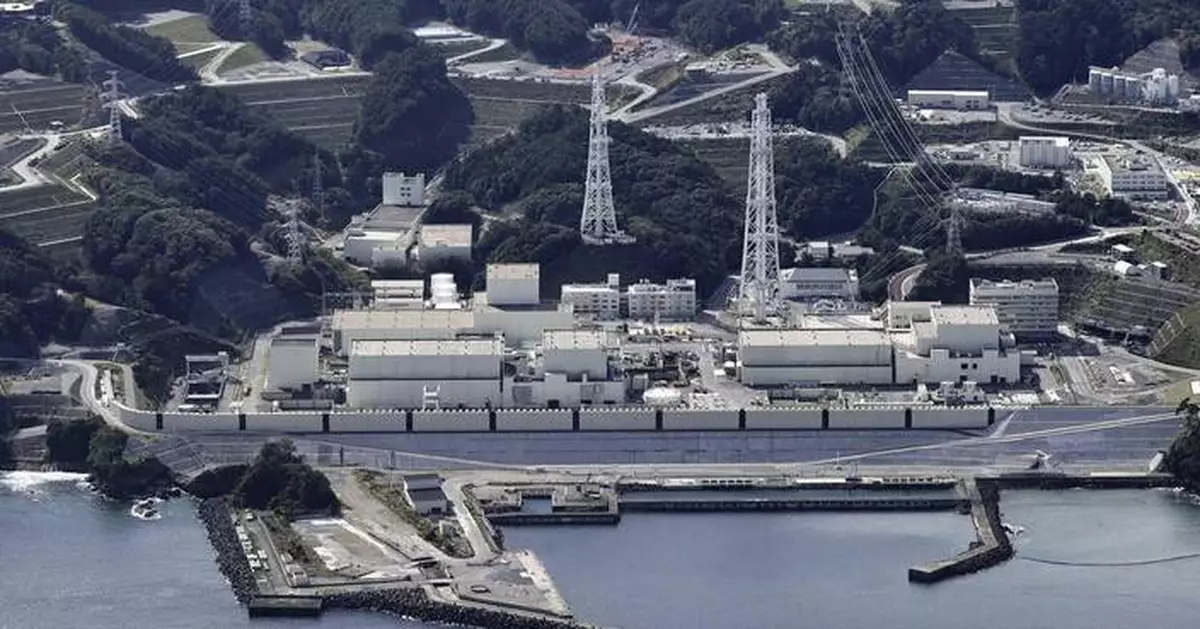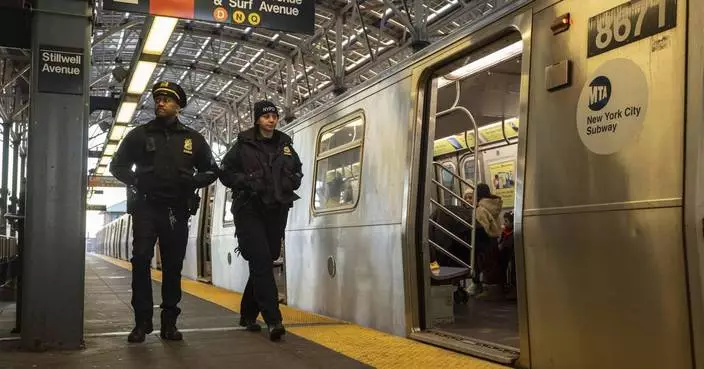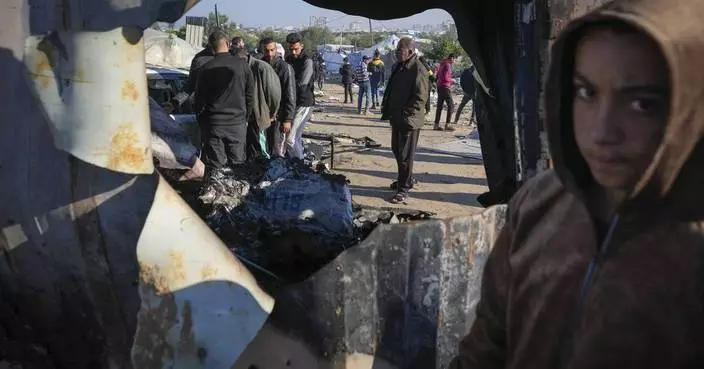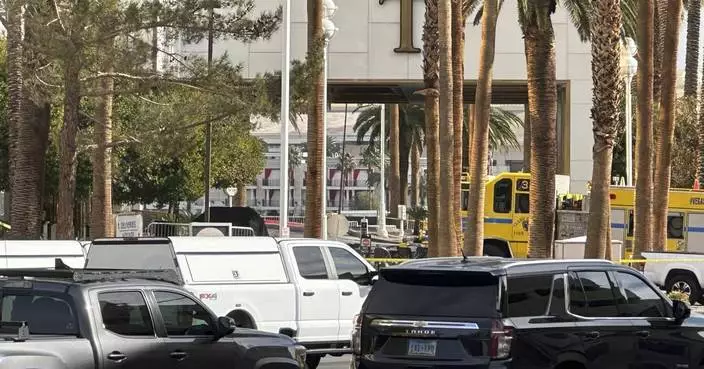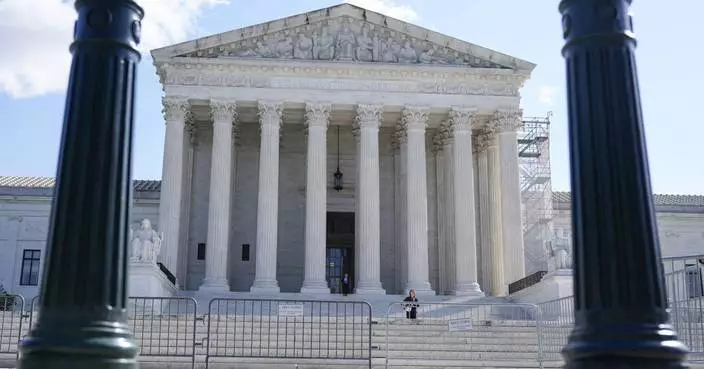TOKYO (AP) — A Japanese nuclear reactor that restarted last week for the first time in more than 13 years after it had survived a massive 2011 earthquake and tsunami that badly damaged the nearby Fukushima nuclear plant was shut down again Monday due to an equipment problem, its operator said.
The No. 2 reactor at the Onagawa nuclear power plant on Japan’s northern coast was put back online on Oct. 29 and had been expected to start generating power in early November.
But it had to be shut down again five days after its restart due to a glitch that occurred Sunday in a device related to neutron data inside the reactor, plant operator Tohoku Electric Power Co. said.
The reactor was operating normally and there was no release of radiation into the environment, Tohoku Electric said. The utility said it decided to shut it down to re-examine equipment to address residents' safety concerns. No new date for a restart was given.
The reactor is one of three at the Onagawa plant, which is 100 kilometers (62 miles) north of the Fukushima Daiichi plant where three reactors melted following a magnitude 9.0 earthquake and tsunami in March 2011, releasing large amounts of radiation.
The Onagawa plant was hit by a 13-meter (42-foot) tsunami triggered by the quake but was able to keep its crucial cooling systems functioning in all three reactors and achieve their safe shutdowns.
All of Japan’s 54 commercial nuclear power plants were shut down after the Fukushima disaster for safety checks and upgrades. Onagawa No. 2 was the 13th of the 33 still useable reactors to restart.
Japan's government last year adopted a plan to maximize use of nuclear energy and is pushing to accelerate reactor restarts to secure a stable energy supply and meet its pledge to reach carbon neutrality by 2050.
Concern about the government’s revived push for nuclear energy grew after a magnitude 7.5 earthquake hit Japan’s Noto Peninsula on Jan. 1, 2024. killing more than 400 people and damaging more than 100,000 structures. It caused minor damage to two nearby nuclear facilities, and evacuation plans for the region were found to be inadequate.
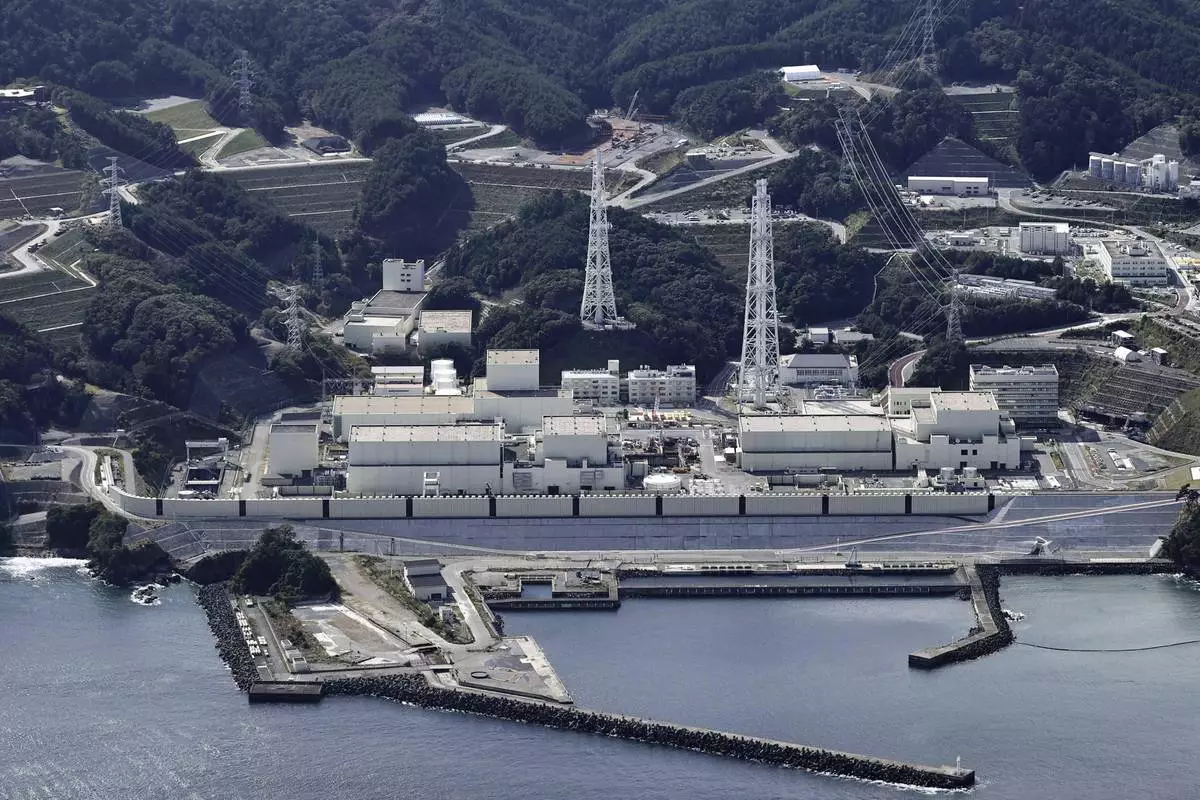
This photo shows the Onagawa nuclear power plant, operated by Tohoku Electric Power Company, Inc., in Onagawa, northeastern Japan, Thursday, Oct. 24, 2024. (Juntaro Yokoyama/Kyodo News via AP)
NEW ORLEANS (AP) — Ticketed fans in Georgia and Notre Dame gear packed a plaza adjacent to the Superdome, enjoyed music under clear skies — and under the watch of snipers on rooftops — before filtering into the stadium for Thursday afternoon's College Football Playoff quarterfinal at the Sugar Bowl.
“It was a lot of fun. It felt safe, “said Shannon Horsey, a Georgia fan in her 40s who lives in Austin, Texas. ”Coming in they searched by bag thoroughly. So I felt like, OK, they're really paying attention."
She was in New Orleans with her husband, Joe, a 48-year-old Georgia graduate, and their teenage children, Jack and Zoe.
They extended their stay after the game, originally scheduled for Wednesday night, was postponed because of an attack in which a man drove a pickup truck into crowds in the French Quarter, killing 14 New Year’s revelers before police killed the attacker in a shootout. Dozens more were injured.
“We can see the presence up on the rooftop," Horsey said, pointing at a sniper above Champions Square. "So, I kind of felt like this is probably one of the safest places to be in the city.”
Joe Horsey found the pregame crowd larger than he expected but, also found the "energy lower than a normal football game.”
“You could sense the musicians trying to get people riled up. People are kind of going through the paces, a little bit in shock, but trying to make the best out of the day,” he said.
It also seemed to Horsey that opposing fans were being a little more polite to one another than at a typical game.
“SEC football can get nasty on game day and can get a little raucous," he said. "But there's a little different sense of civility and that there's bigger things than football.”
Flags were at half-staff outside nearby government buildings in memory of those killed in the attack, which has been labeled by authorities an act of terrorism.
The attack occurred on Bourbon Street, which runs through the heart of the French Quarter and is famously lined with bars, restaurants and clubs, near the corner of Canal Street, a main downtown artery.
The crime scene, which was gradually being cleared so it could be reopened to the public on Thursday afternoon, is about a mile’s walk from the Superdome.
Security was ramped up in and around the stadium.
Police blocked regular traffic from passing by the main Superdome entrance on Poydras Street, an eight-lane downtown artery.
A helicopter circled overhead.
Numerous security officers around the 70,000-seat stadium were handling dogs trained to sniff for explosive devices. They encircled cars entering the Superdome parking garage and in some cases sniffed bags and backpacks.
The game, originally scheduled for 7:45 p.m. CST on Wednesday, was pushed back to 3 p.m. Thursday, with the winner advancing to the Jan. 9 Orange Bowl against Fiesta Bowl winner Penn State. It was the first time the Sugar Bowl had been postponed in its 91-year history (although it had been relocated at the end of the 2005 season because of Hurricane Katrina).
Mark Oldani, a 58-year-old Nashville resident and 1988 graduate of Notre Dame, took a group photo for a gathering of Georgia fans in from of the Superdome.
The crowd was “friendly, nobody yelling back and forth at each other,” he said. “I think everybody's coming in hoping for a good game and wanting to make the most of a really difficult situation.”
Before the singing of the national anthem, a moment of silence, lasting close to half a minute, was held.
While many traveling fans extended their stay to attend the game, the postponement meant some would not be able to attend because of travel plans that were deemed too expensive or logistically difficult to change.
Numerous tickets were listed for resale online at prices of $30 or less, some as low as $23.
Postponing the game “was absolutely the right call,” said Lisa Borrelli, a 34-year-old Philadelphia resident who came to New Orleans with her fiancé, a 2011 Notre Dame graduate, but could not stay for the game.
She said they paid more than $250 per ticket and weren't sure if they'd bother listing them for resale because prices were so low.
“Of course we’re disappointed to miss it and to lose so much money on it, but at the end of the day it doesn’t matter,” Borrelli said. “We’re fortunate enough that we’ll be fine.”
The Superdome also is scheduled to host the Super Bowl on Feb. 9.
Get poll alerts and updates on the AP Top 25 throughout the season. Sign up here. AP college football: https://apnews.com/hub/ap-top-25-college-football-poll and https://apnews.com/hub/college-football
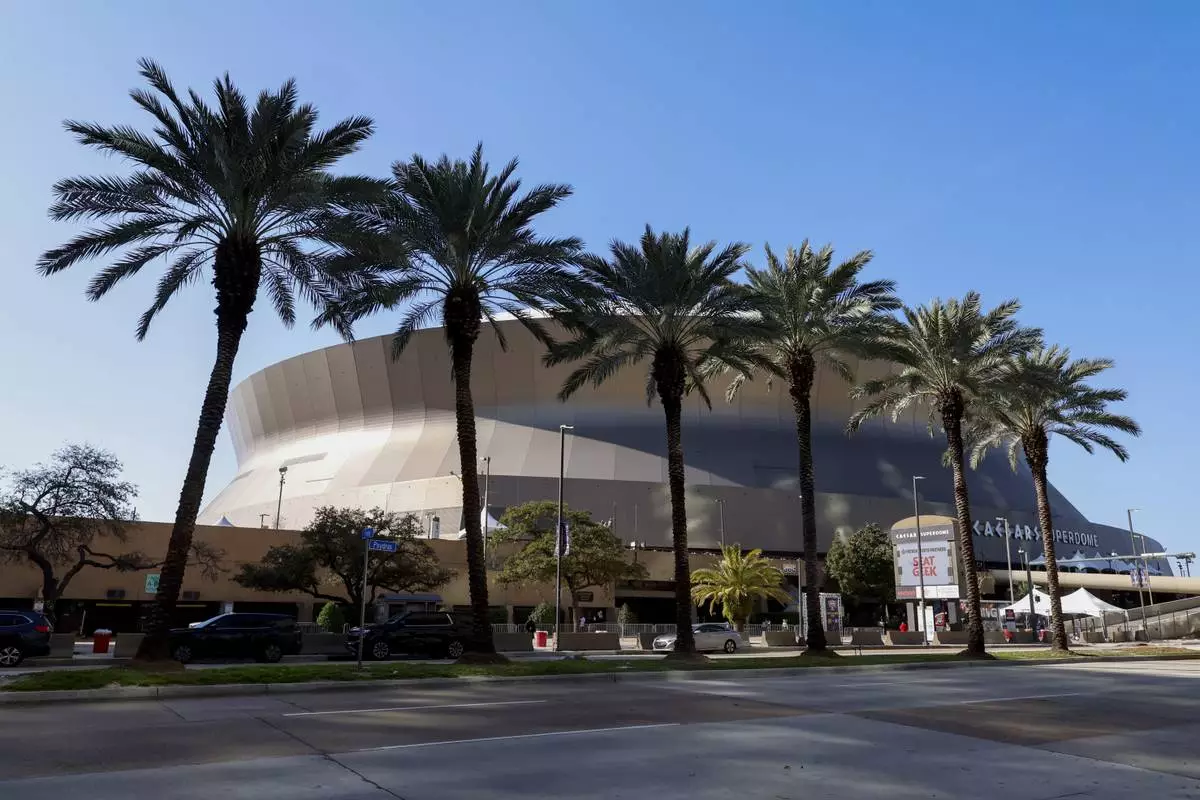
Street view of Superdome ahead of the Sugar Bowl NCAA College Football Playoff game, Thursday, Jan. 2, 2025, in New Orleans. (AP Photo/Butch Dill)
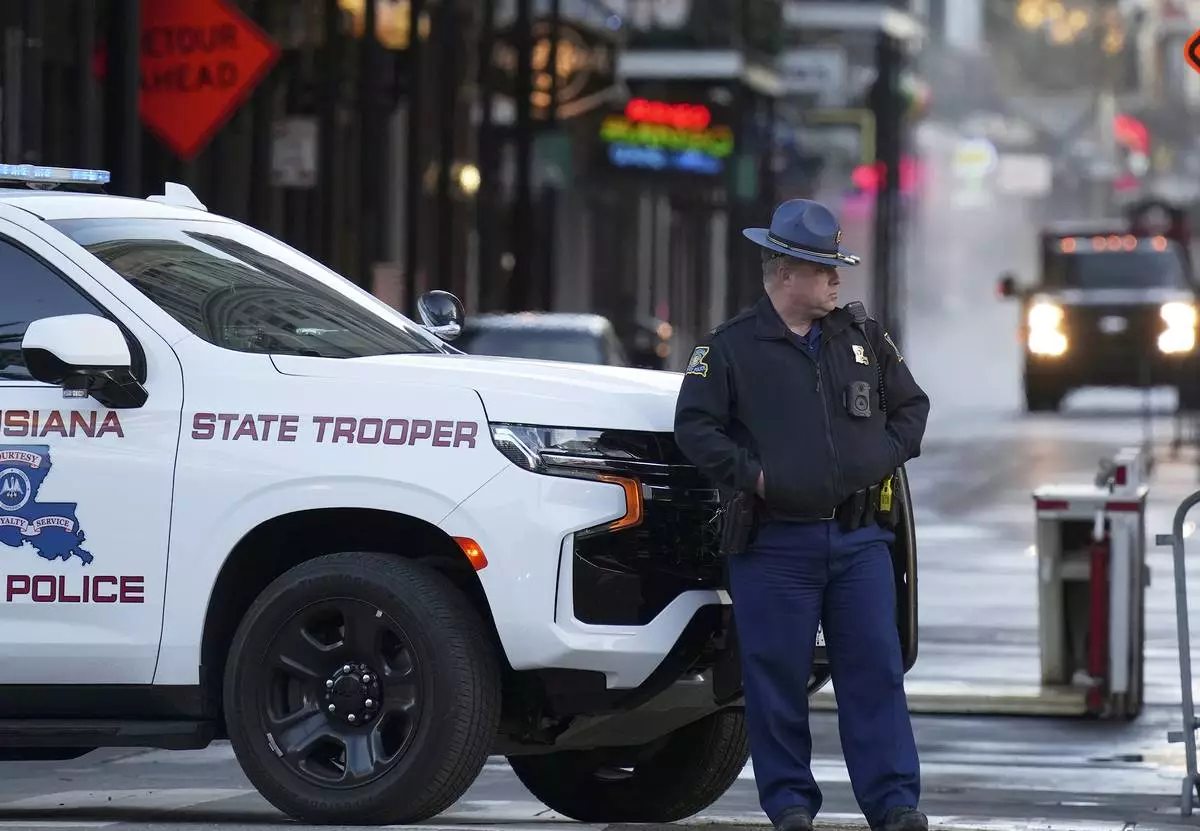
A state trooper stands by New Orleans' Canal and Bourbon streets, Thursday, Jan. 2, 2025. (AP Photo/George Walker IV)
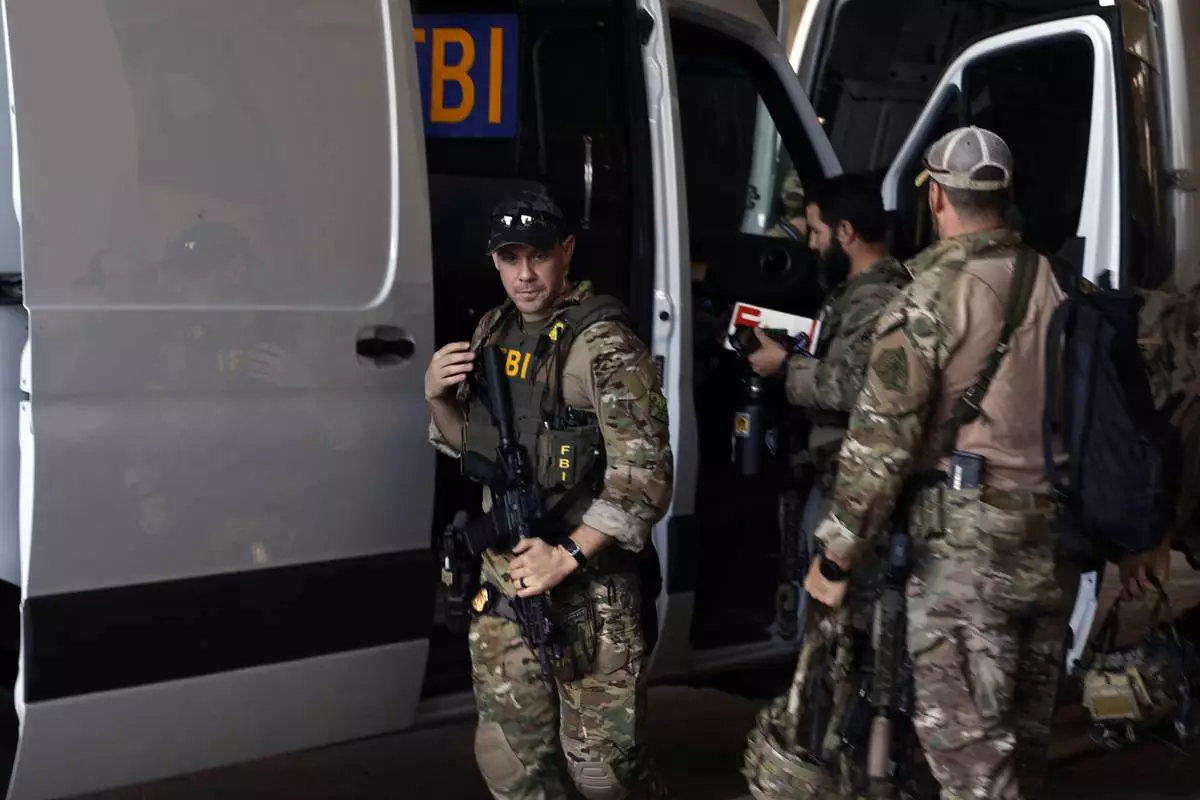
FBI personnel arrive at the Caesars Superdome ahead of the Sugar Bowl NCAA College Football Playoff game, Thursday, Jan. 2, 2025, in New Orleans. (AP Photo/Butch Dill)
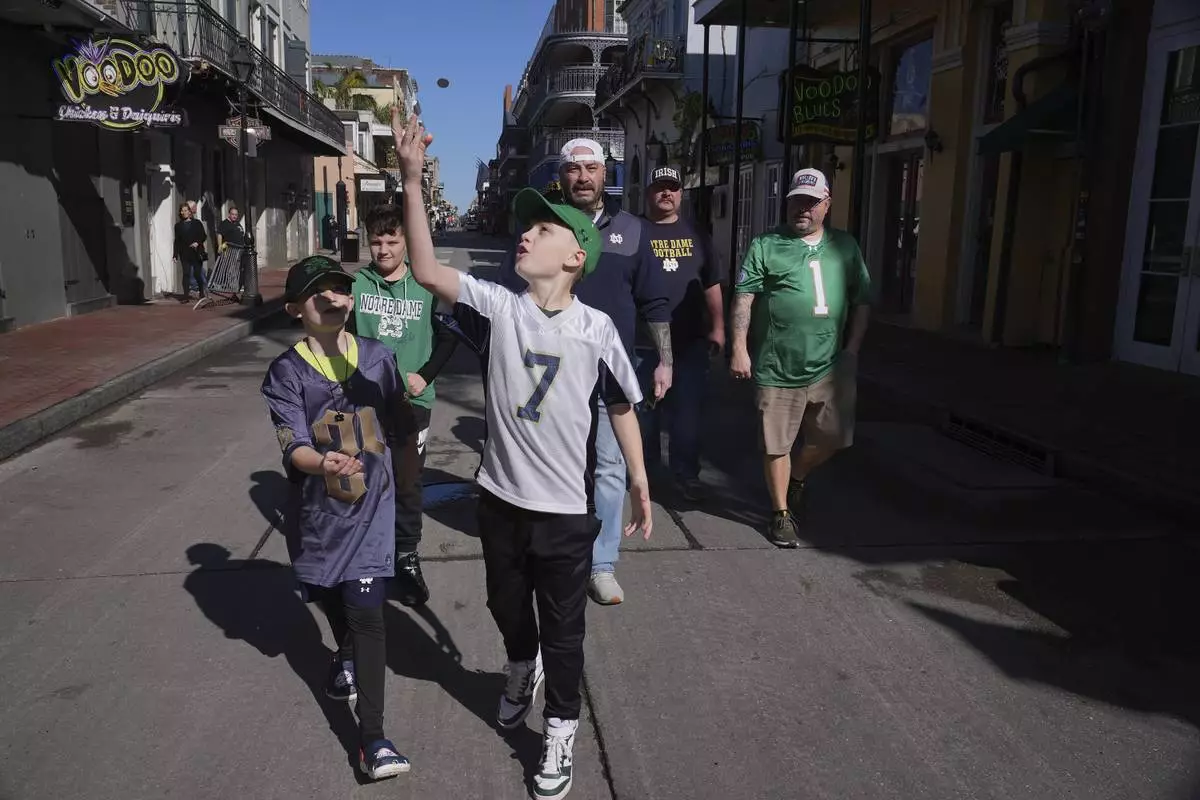
Cory Hunter flips a coin on Bourbon Street, Thursday, Jan. 2, 2025 in New Orleans. (AP Photo/George Walker IV)
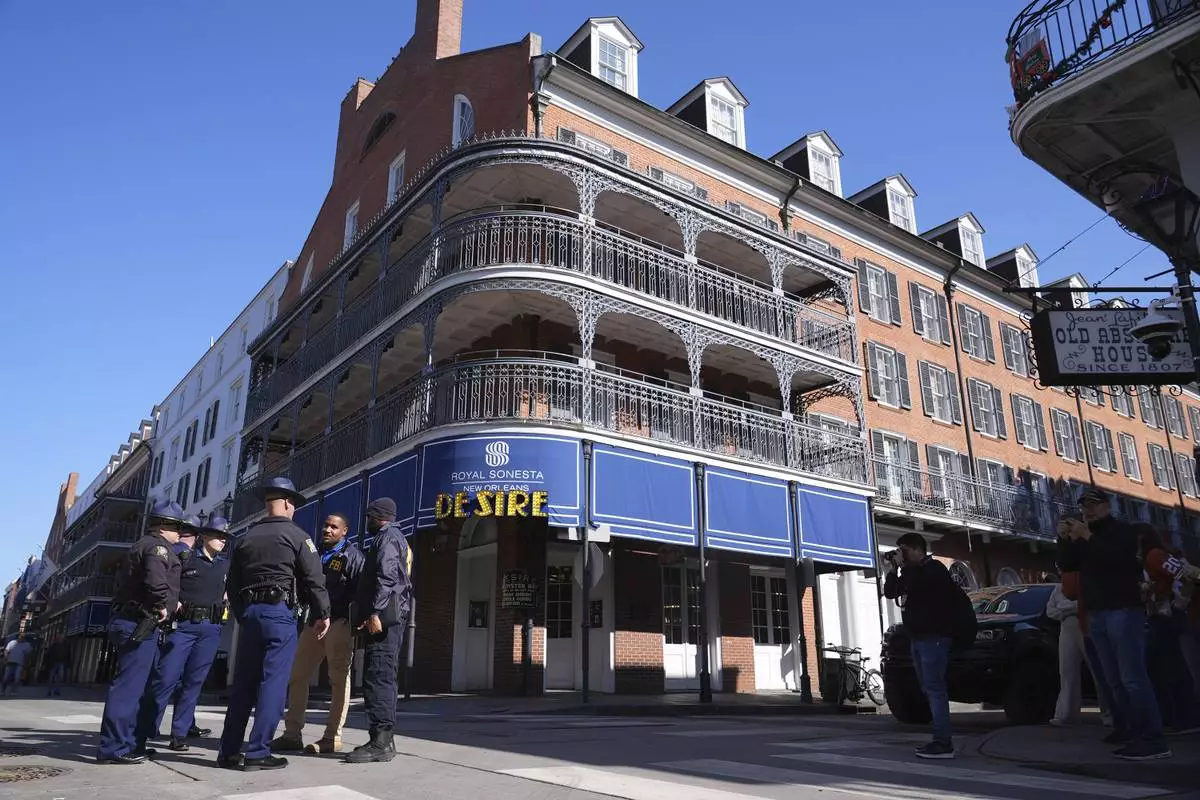
Law enforcement gather in front of the Sonesta Hotel on Bourbon Street, Thursday, Jan. 2, 2025 in New Orleans. (AP Photo/George Walker IV)
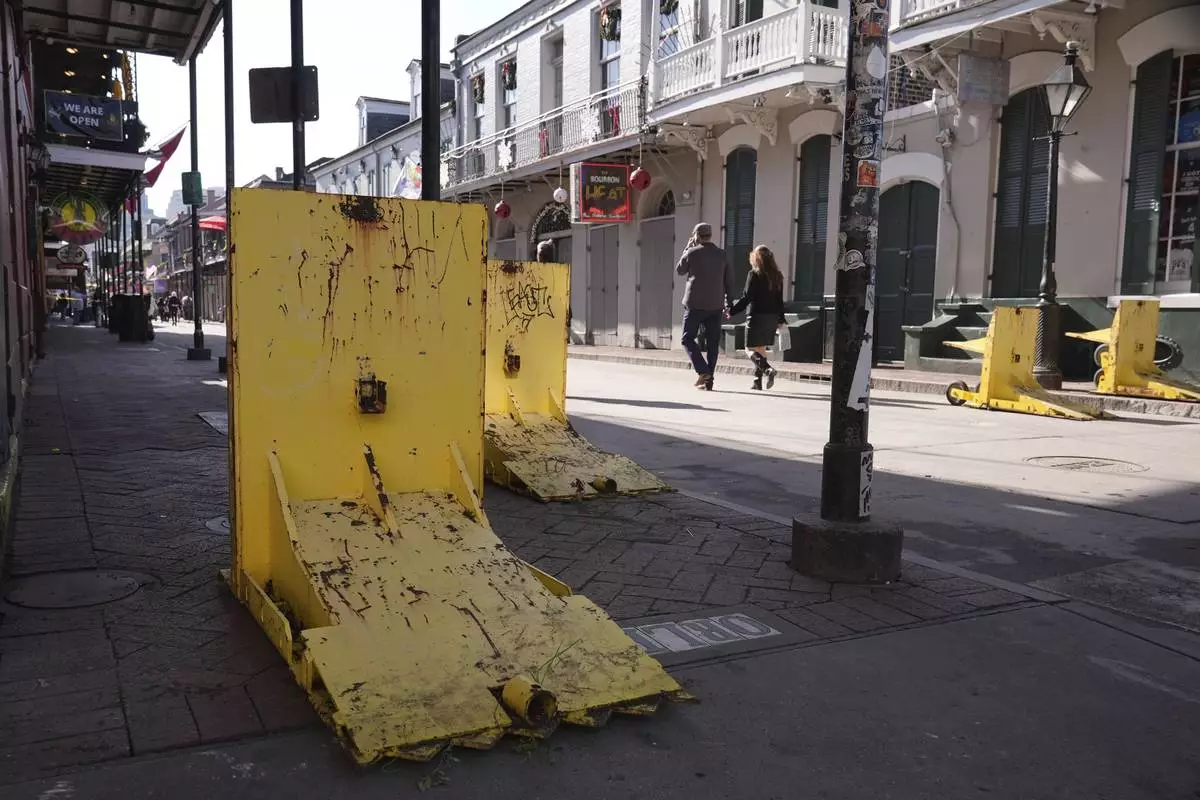
Tourist walk past temporary barriers on Bourbon Street, Thursday, Jan. 2, 2025 in New Orleans. (AP Photo/George Walker IV)
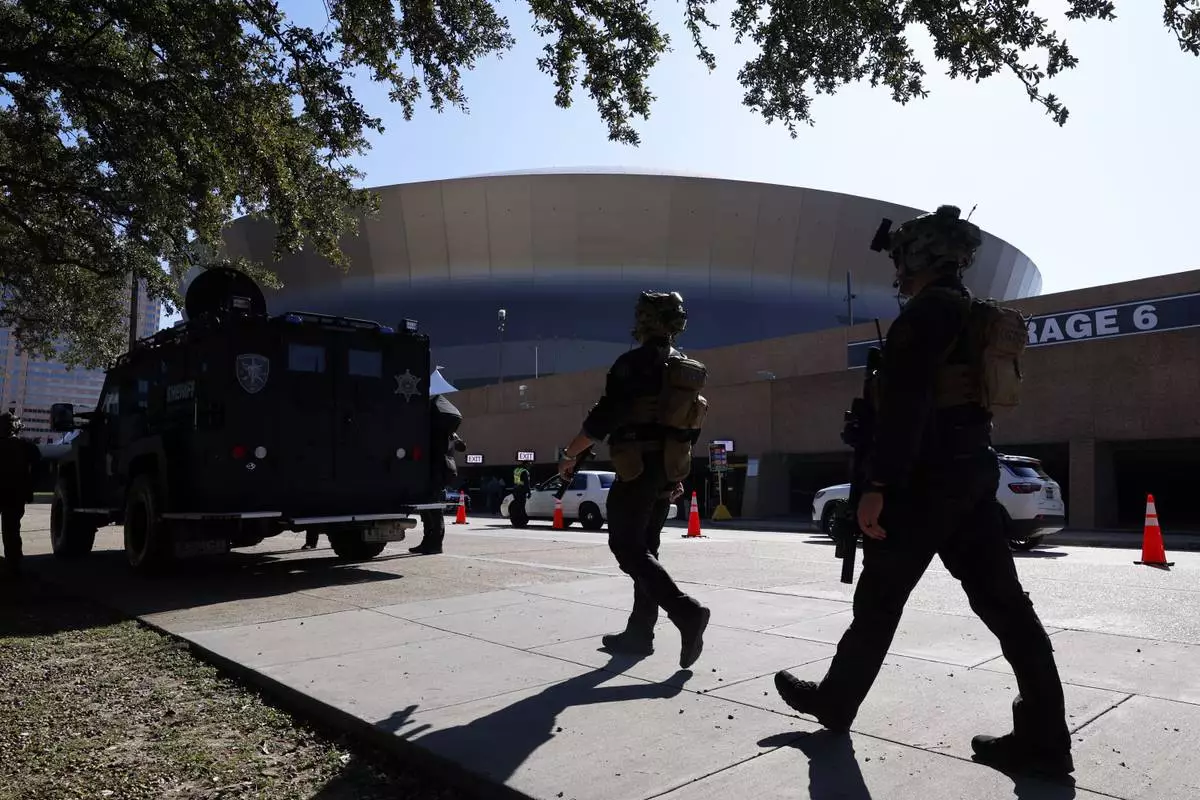
Local SWAT teams patrol outside the Caesars Superdome ahead of the Sugar Bowl NCAA College Football Playoff game, Thursday, Jan. 2, 2025, in New Orleans. (AP Photo/Butch Dill)
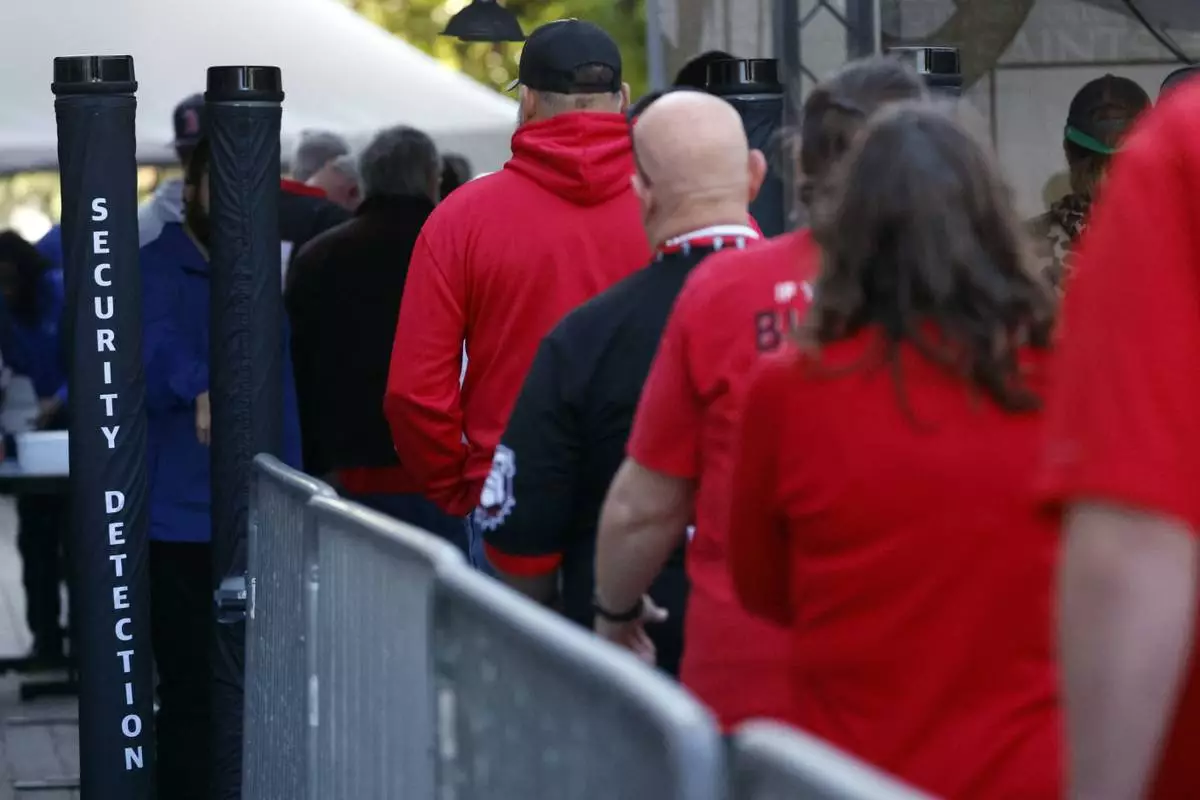
Fans pass through security check points as they enter the Superdome fan zone ahead of the Sugar Bowl NCAA College Football Playoff game, Thursday, Jan. 2, 2025, in New Orleans. (AP Photo/Butch Dill)
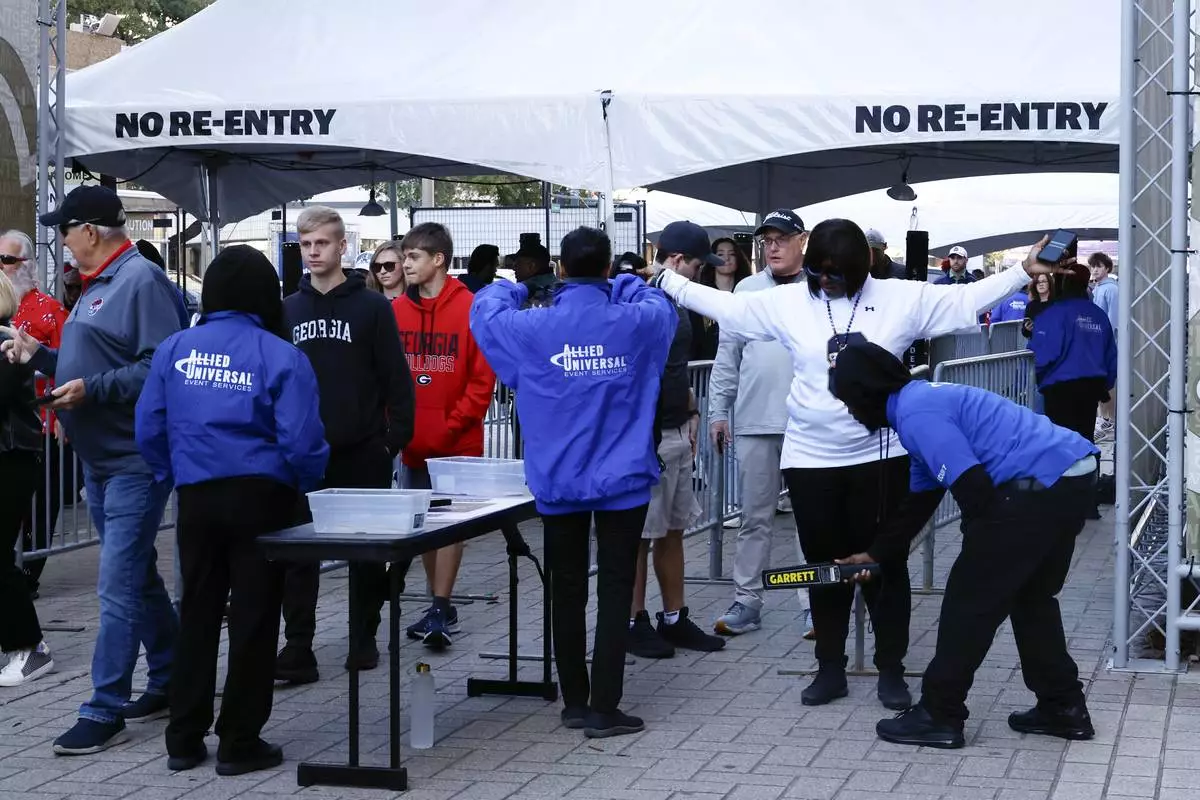
Fans pass through security check points as they enter the Caesars Superdome fan zone ahead of the Sugar Bowl NCAA College Football Playoff game, Thursday, Jan. 2, 2025, in New Orleans. (AP Photo/Butch Dill)
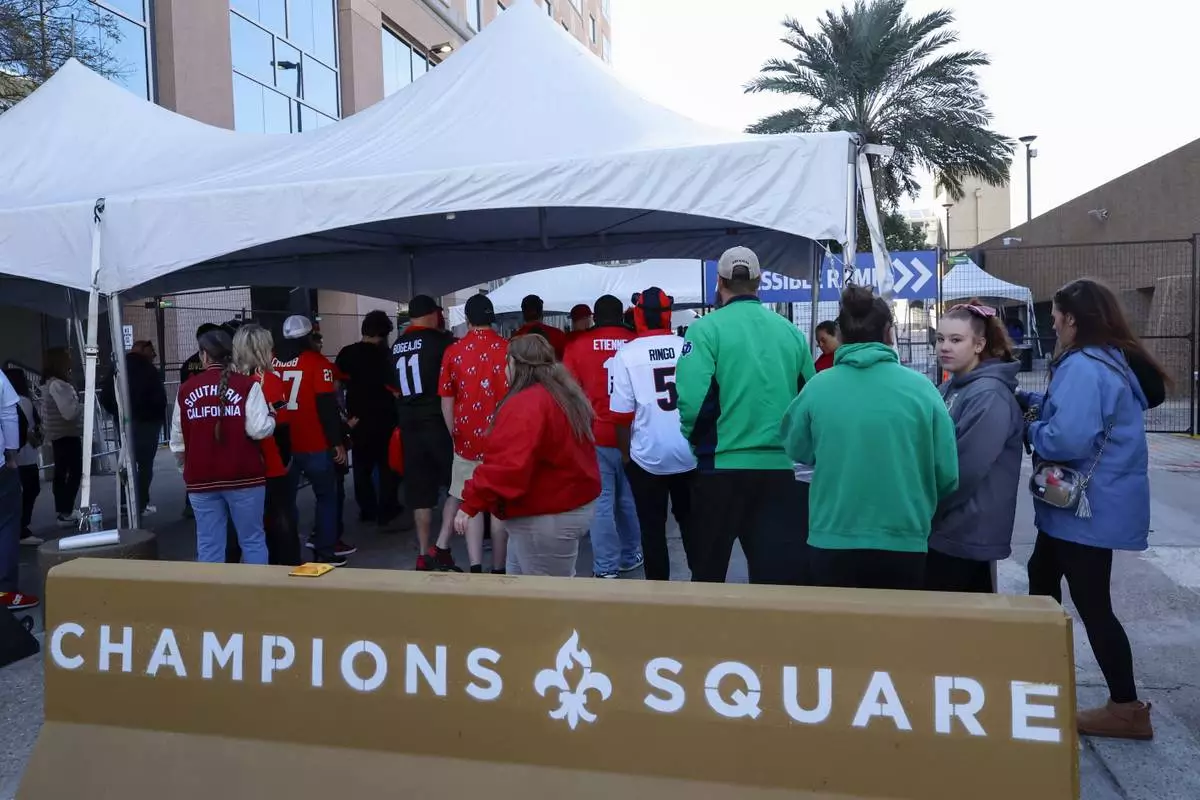
Fans pass through security check points as they enter the Superdome fan zone ahead of the Sugar Bowl NCAA College Football Playoff game, Thursday, Jan. 2, 2025, in New Orleans. (AP Photo/Butch Dill)
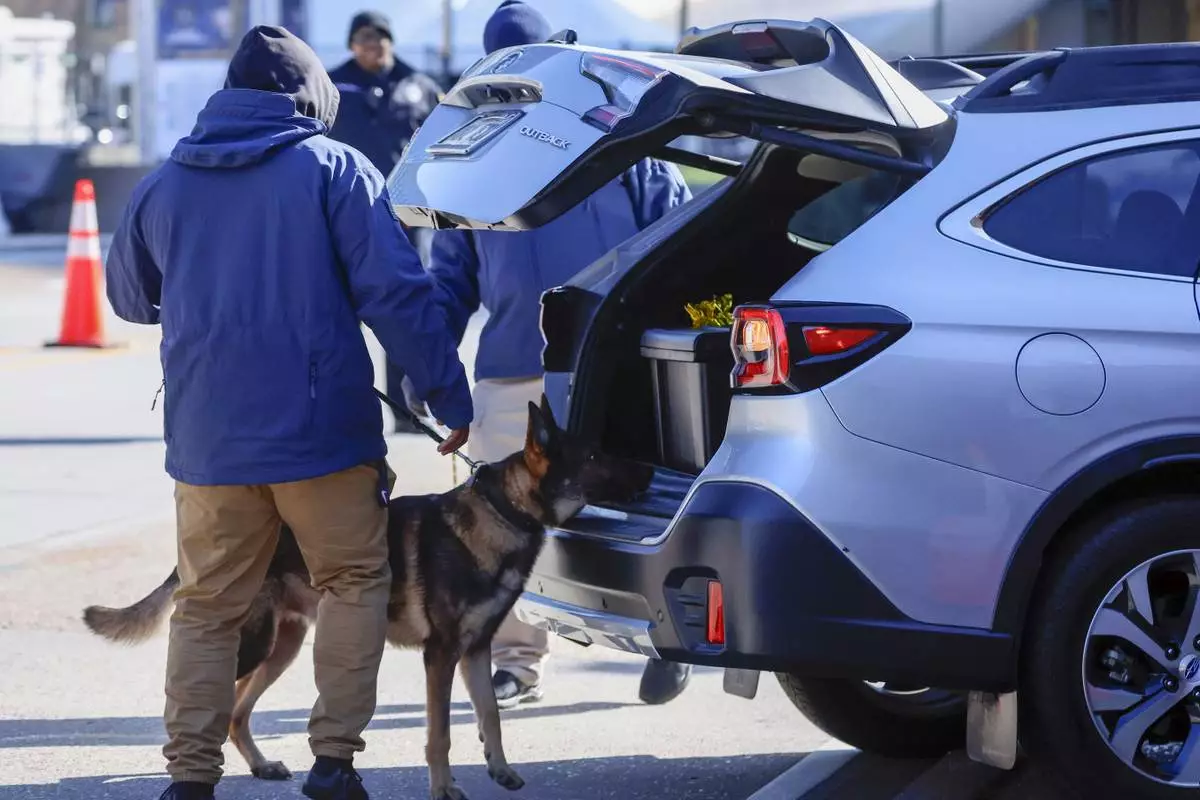
Security with bomb sniffing dogs check vehicles as they enter the Superdome ahead of the Sugar Bowl NCAA College Football Playoff game, Thursday, Jan. 2, 2025, in New Orleans. (AP Photo/Butch Dill)
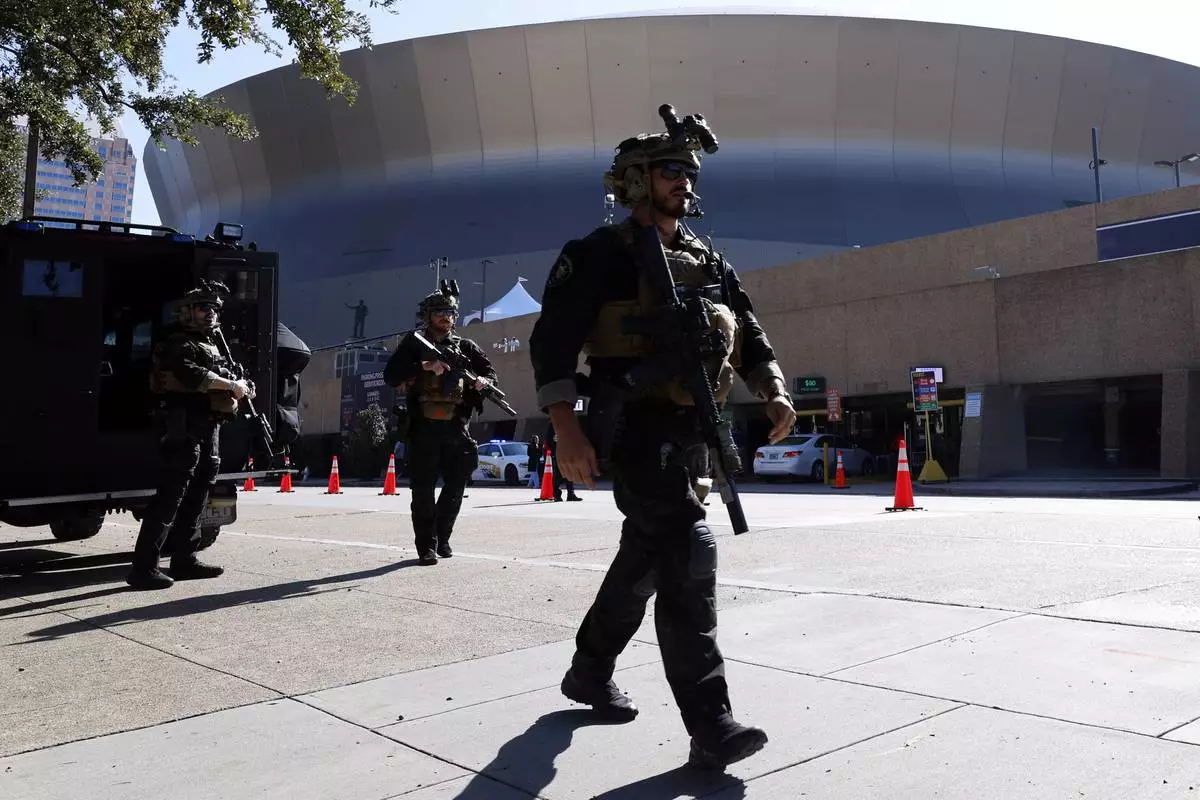
Local SWAT teams patrol outside the Caesars Superdome ahead of the Sugar Bowl NCAA College Football Playoff game, Thursday, Jan. 2, 2025, in New Orleans. (AP Photo/Butch Dill)
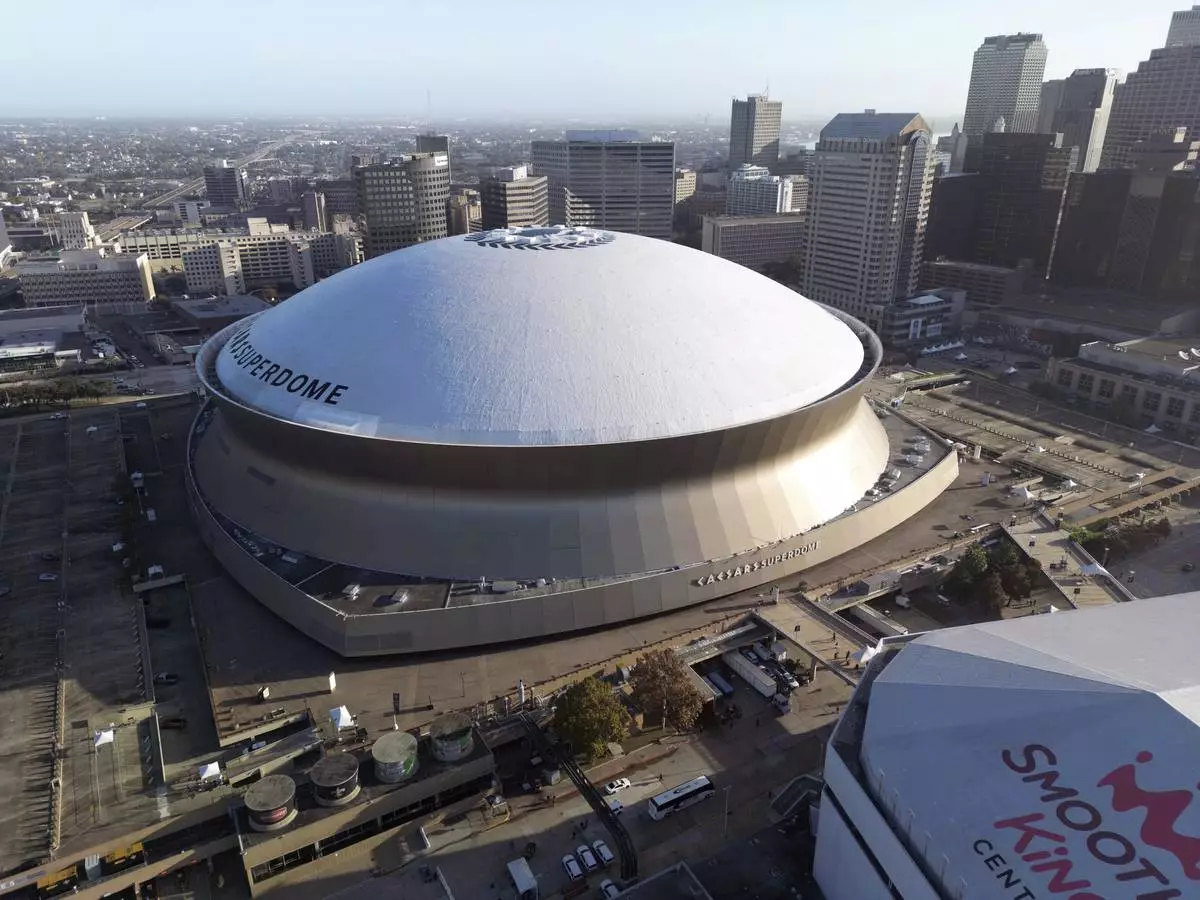
An aerial overall exterior general view of Caesars Superdome, Sunday, Dec. 15, 2024, in New Orleans. (AP Photo/Tyler Kaufman)
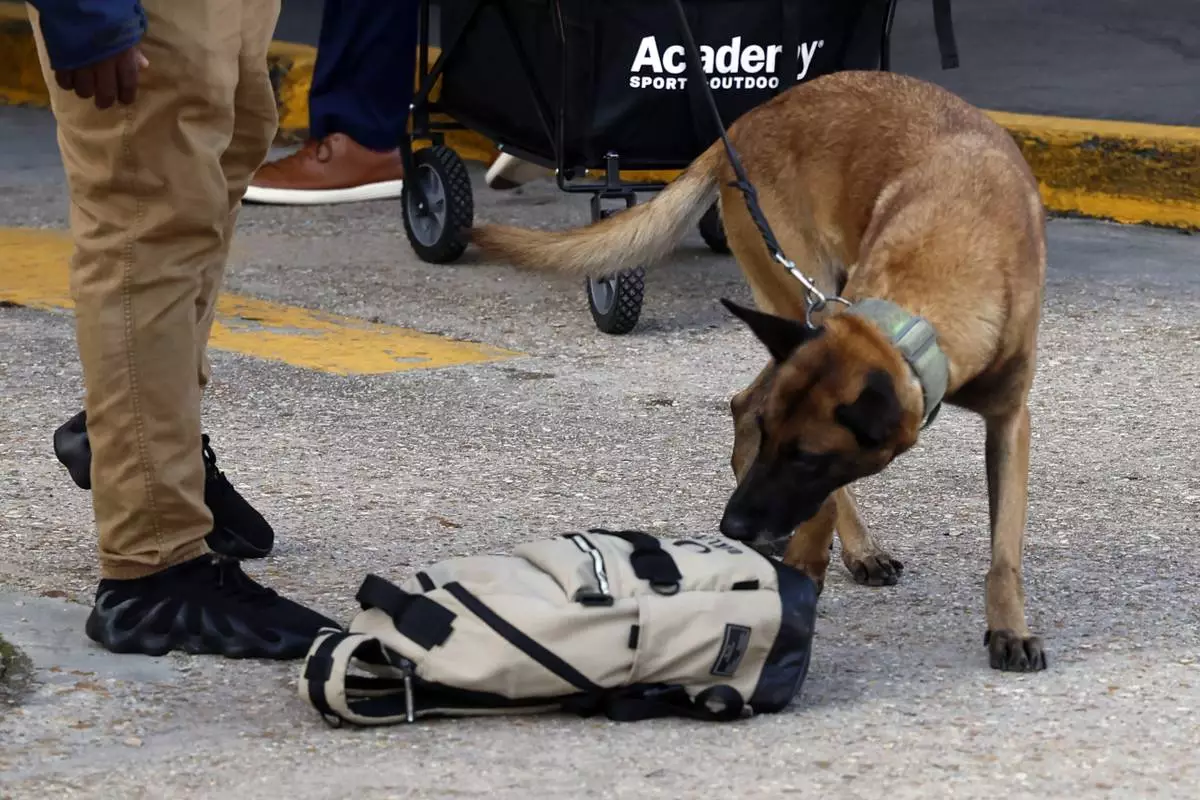
Security and bomb sniffing dogs check backpacks before entering the Superdome ahead of the Sugar Bowl NCAA College Football Playoff game, Thursday, Jan. 2, 2025, in New Orleans. (AP Photo/Butch Dill)
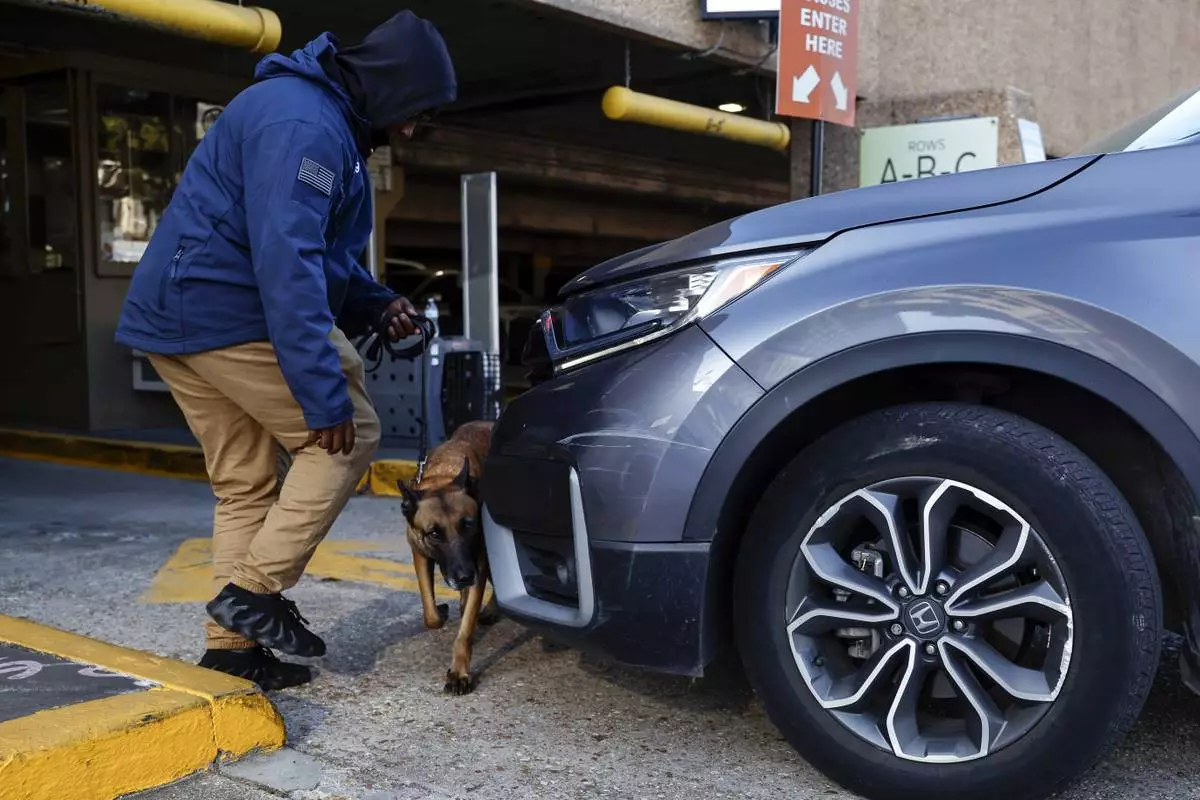
Security and bomb sniffing dogs check vehicles as they enter the Superdome parking garage ahead of the Sugar Bowl NCAA College Football Playoff game, Thursday, Jan. 2, 2025, in New Orleans. (AP Photo/Butch Dill)
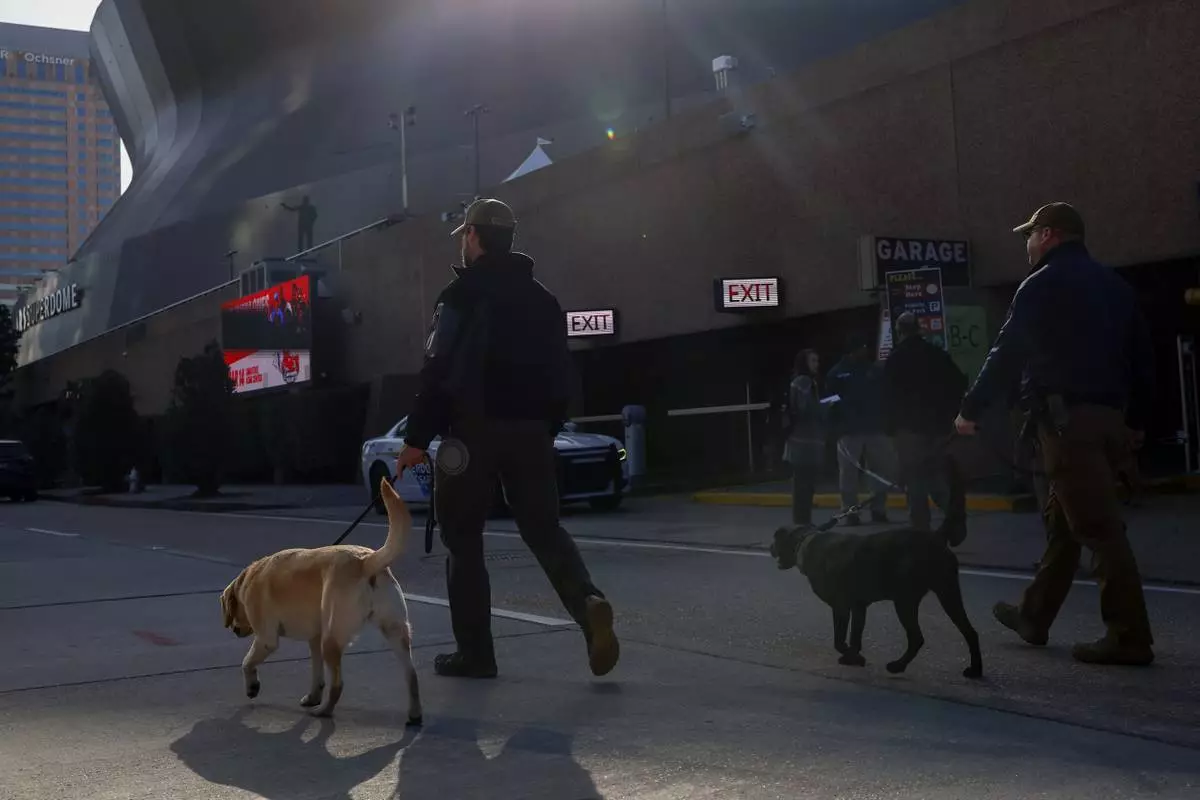
Security with bomb sniffing dogs patrol the area around the Superdome ahead of the Sugar Bowl NCAA College Football Playoff game, Thursday, Jan. 2, 2025, in New Orleans. (AP Photo/Butch Dill)
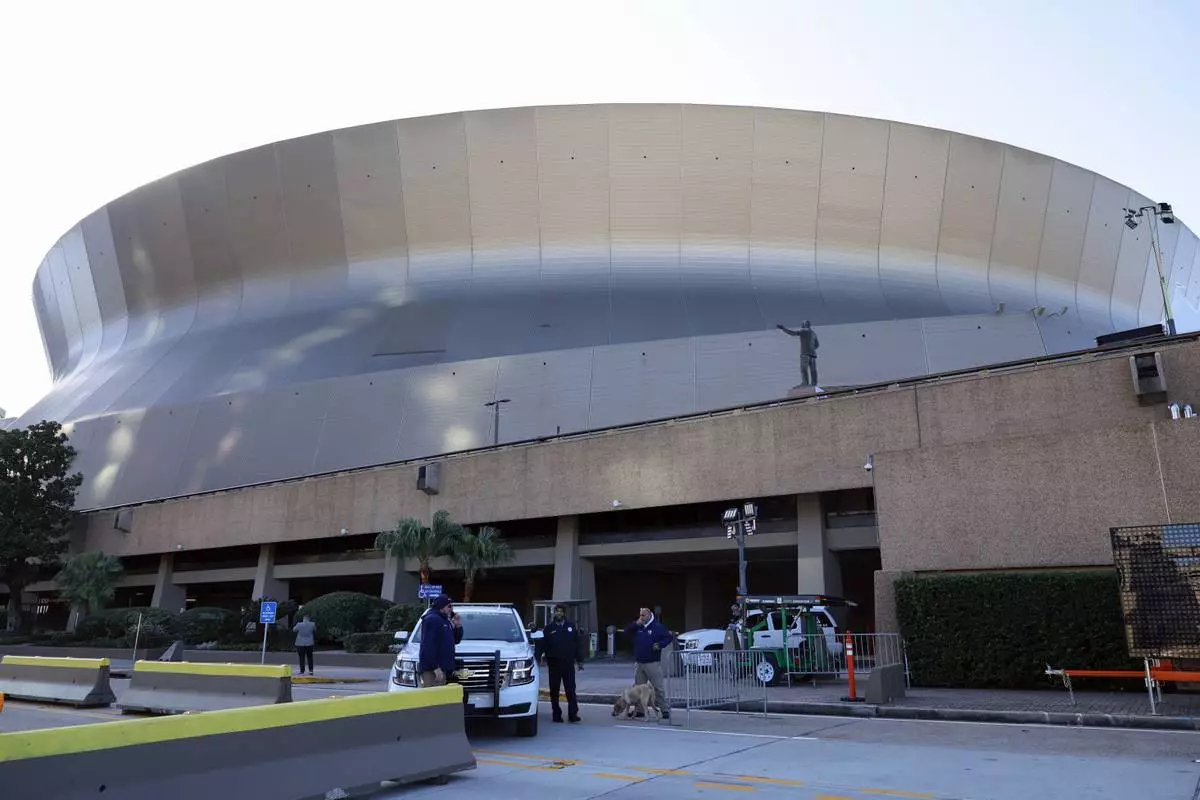
Security and bomb sniffing dogs check vehicles as they enter the Superdome parking garage ahead of the Sugar Bowl NCAA College Football Playoff game, Thursday, Jan. 2, 2025, in New Orleans. (AP Photo/Butch Dill)



